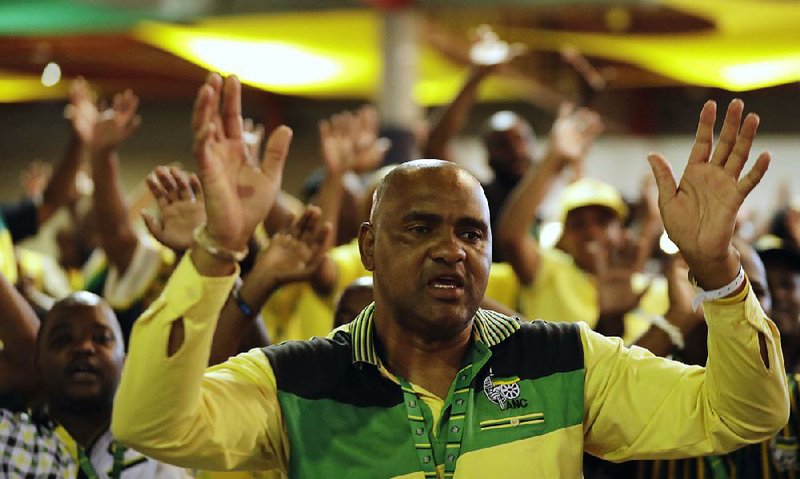South Africa's ruling African National Congress completed the process of nominating new leaders on Sunday, with Deputy President Cyril Ramaphosa and Nkosazana Dlamini-Zuma, President Jacob Zuma's ex-wife and favored successor, confirmed as the sole contenders for the top job.
Voting among the more than 4,700 delegates got off to such a late start Sunday that it was postponed until this morning, an African National Congress official said.
Ramaphosa was nominated by five provinces while the remaining four backed Dlamini-Zuma, the electoral agency overseeing the vote announced at the party's national elective conference in Johannesburg. While five other officials declared their candidature, none of them received nomination from the conference floor.
David Mabuza, the premier of the eastern Mpumalanga province, and Human Settlements Minister Lindiwe Sisulu will square off in the contest for the African National Congress deputy presidency, while Gwede Mantashe, the party's outgoing secretary-general, will vie for the post of chairman. Senzo Mchunu, the former premier of KwaZulu-Natal province, and Ace Magashule, the premier of the central Free State region, were nominated for secretary-general.
The election results are expected to be announced today. The contest has divided the 105-year-old national Congress, weighed on the rand and South Africa's bonds, and deterred foreign investment.
The rand gained 1.3 percent to 12.9281 per dollar by 10:55 p.m. in Johannesburg, the strongest level on a closing basis since Sept. 7. Against the euro, it strengthened 1.4 percent to 15.1757.
In a report delivered to the conference, Mantashe said the national Congress was riven by factionalism, showing serious signs of decline and in danger of the losing the electoral majority it's held since white majority rule ended in 1994. He said the party failed to respond adequately to criticism of Jacob Zuma and allegations that private companies wielded undue influence over the state, a phenomenon known in South Africa as state capture.
"Rebuilding the reputation and image of the movement should be a priority," Mantashe said. "The risk of losing power is real."
The mood at the party conclave, held once every five years, was jubilant Saturday as delegates arrived at a conference center in luxury buses, clad in the African National Congress' yellow and green colors. However, disagreements quickly broke out over the legitimacy of some delegate groups. By midday Sunday, the credential process was resolved.
The African National Congress' reputation has taking a beating during Zuma's scandal-ridden tenure, causing rifts that threaten to split Africa's oldest liberation party. Keeping the national Congress together has been a key talking point at the gathering.
"In all its manifestations, factionalism has become the biggest threat to the organization," Zuma said in a speech at the opening of the conference. "Unity is what will make the [African National Congress] and South Africa succeed."
On Saturday, Zuma made a surprise announcement that the government would fully subsidize tertiary education for "poor and working class" students, despite findings of a government commission that South Africa cannot afford it. Some observers read the move as a last-minute push to help the campaign of Dlamini-Zuma.
Information for this article was contributed by Amogelang Mbatha, Sam Mkokeli, Paul Vecchiatto and Mike Cohen of Bloomberg News; and by Krista Mahr of The Associated Press.
A Section on 12/18/2017
